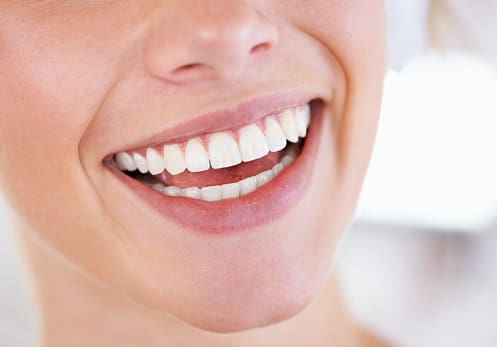How Chewing Gum Helps Your Oral Health
Did you know that something as simple as chewing sugar-free gum can improve your oral health? It might seem surprising, but chewing gum can keep your teeth white, your breath fresh, and even protect against tooth decay. Let’s explore the benefits of sugar-free gum and how it can play a role in keeping your mouth healthy.

1. Freshens Your Breath
Bad breath happens to everyone from time to time. It could be caused by eating foods like garlic or onions. It could also be because of an oral health issue like dry mouth or gum disease. If your bad breath sticks around, it might be time to see your dentist to find the root cause.
For occasional bad breath, sugar-free gum can help. Chewing gum with a minty flavor can mask odors and boost the flow of saliva in your mouth. This extra saliva helps wash away the bacteria and food particles that are often responsible for bad breath.
2. Helps Whiten Teeth
Many people notice their teeth getting discolored as they get older. Habits like drinking coffee, smoking, or eating foods can stain teeth. While professional whitening treatments are very effective, there are other ways to keep your smile bright.
Whitening gum can whiten your teeth. When chewed after a meal, it can help remove bits of food that cause stains and slowly make teeth whiter. Plus, it boosts your saliva flow, which naturally helps rinse your teeth. Whitening gum can also create a thin coating on your teeth to briefly block new stains from forming.
3. Boosts Saliva Flow
Chewing gum is a great way to increase saliva in your mouth. This is important because saliva helps neutralize acids and flush out bacteria that could lead to tooth decay. Saliva also washes away leftover food particles, which keeps your teeth clean and reduces the risk of plaque buildup.
Saliva plays a key role in protecting your teeth by keeping your mouth at a healthy pH level. It also helps strengthen tooth enamel by delivering important minerals like calcium and fluoride. For people with dry mouth, chewing gum can provide relief by stimulating the production of more saliva.
How does this work? When you chew, the muscles in your mouth press on the salivary glands, encouraging them to release more saliva. By chewing gum after a meal, you can increase the saliva in your mouth and give your teeth a little extra protection. The extra saliva helps prevent acids from breaking down your tooth enamel and causing erosion.
4. Helps Prevent Tooth Decay
Saliva doesn’t just keep your mouth feeling fresh, it also helps fight tooth decay. It washes away harmful bacteria that can damage your teeth and carries nutrients that strengthen tooth enamel. Since chewing gum helps produce more saliva, it can be an easy way to protect your teeth from decay, especially after meals.
Research shows that chewing sugar-free gum for about 20 minutes after eating can reduce the risk of tooth decay. While chewing gum isn’t a substitute for brushing and flossing, it can be a helpful addition to your daily routine. Just make sure to choose sugar-free gum to avoid adding sugar to your mouth.
5. Reduces Acid Attacks on Teeth
Every time you eat or drink something acidic, your teeth undergo an “acid attack” that weakens enamel. Chewing sugar-free gum helps neutralize these acids faster by stimulating saliva production. Saliva naturally balances your mouth’s pH level, protecting your enamel from erosion. This is especially helpful when you can’t brush right after a meal.

6. Supports Gum Health
Chewing gum gently massages your gums, which improves blood circulation in your mouth. Better circulation keeps gum tissue healthy and can reduce inflammation. For patients with early signs of gum disease, increased saliva from chewing gum can also help wash away bacteria that irritate gums.
7. Eases Jaw Tension
If you tend to clench your jaw when stressed, chewing gum in moderation can provide relief by giving your jaw muscles a gentle workout. This may help prevent tension headaches caused by jaw tightness. Just be careful not to overdo it because excessive chewing can strain your jaw joint over time.
8. Helps After Dental Procedures
Surprisingly, dentists sometimes recommend sugar-free gum after certain procedures. For example, chewing gum after a filling can help your bite adjust to the new shape of your tooth. It may also ease discomfort from minor dental work by promoting blood flow. Always check with your dentist first, as gum isn’t suitable after all procedures.
9. Aids in Focus and Concentration
While not directly an oral health benefit, studies show chewing gum can improve focus and reduce stress. This might make you less likely to grind your teeth when concentrating. The act of chewing increases blood flow to the brain, helping you stay alert.
10. What to Look for in a Gum
To get these benefits, always choose sugar-free gum sweetened with xylitol. This natural sweetener tastes good and actually fights cavity-causing bacteria. Avoid gums with sugar because they do the opposite of what you want. Sugar feeds harmful bacteria instead of protecting your teeth.
Adding sugar-free gum to your routine, especially after meals, is one of the easiest ways to give your oral health a boost. While it’s no replacement for brushing and flossing, it’s a convenient extra step that keeps your mouth cleaner throughout the day.
Comprehensive Dental Care in Hunt Valley, MD
Sugar-free gum offers many benefits for your oral health. However, it can’t replace your regular brushing, flossing, and dental checkups. Make sure you’re chewing sugar-free gum because other flavored varieties with sugar can actually make your teeth yellow.
If it’s been a while since your last visit, make sure to schedule an appointment with us. We can help you get a healthy and bright smile. You can book an appointment online or call Valley Dental Health at 443-733-6613.
